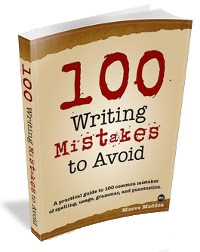It was winter outside and the snow had been falling since yesterday, cloaking the environment with wool whiteness. I lolled under a thermal sheet, trying to recall the land I had left behind.
Sleep drew me close like a warm blanket on a very cold day. Sooner than I expected I fell into dream land. I dream of shadows these days. Gone are those visions of sunny meadows amongst which bright coloured butterflies fluttered, carried by gentle winds towards windswept hillocks. Though my heart’s eye still sees them, my mind knows it’s all gone, not near, too far away for even briefest touch. Like all other things I left behind, eroded with the vestiges of my past.
My dreams grew darker and fear propelled me, not out, but into deeper slumber and I awoke in another land, one I am all too familiar with, the one that comes to me whenever loneliness gets too hard to bear.
Now I lay, prone, no longer in my heated bedroom, amongst polka dot bed sheets, but in the mahogany and spring Vono bed I inherited from my mother, who has been gone now three years into the place of the ancestors -a bed she swore soaked up the red waters of her maiden head on her nuptial night. I wonder if she would turn in her cold grave if she knew that mine too was given up on this same bed not so long ago, only not on a nuptial night –not her kind anyway- but under the almost feminine weight of my cousin Bir, who sobbed like a woman afterwards while I silently watched the blood drip, already contemplating what next time will feel like.
I arose with a smile on my rosy lips, stretching my body as I stalked over to push open the bedroom windows. I scanned the valley beyond the bamboo fence my brothers erected years back to protect our chickens from prowling hyenas, attracted by the glint of sunlight off the roof of several mansions set into the slopes of Mgbidi.
I remembered I always wanted to own a house like that but mother never understood that desire, ‘stupid people,’ she says, ‘they build houses with room enough for an entire clan yet they only get to sleep in one room for only a few days in a year, Wasteful people.’ The venom usually poured from her at times like these and her eyes always lets me know that I am one of those ‘stupid people’.
The merry bark of our beloved family dog, told me father is back from his new job at the newly commissioned secondary school. He used to be a respected yam farmer, and then he became a respected driver, now he is a respected security officer –sorry, another name for a night-watchman, not that he will hear of that.
That’s one thing that is synonymous with father, RESPECT. He doesn’t say anything without mentioning respect. ‘Respect even those you are bigger than because respect tends to reciprocate’ that’s his mantra and he believes in it.
Suddenly was outside my door waiting for father to notice me, like I used to do when I was much younger. He smiled when he saw me and gave me the tightly wrapped ball of akara that he always remembers to bring back for me from wherever his journeys took him. It was because of him I falsely believed akara is available everywhere. I smile my thanks and he smiled back –are there gaps in his mouth where teeth used to be?
There had never been much need for words between us as we understand each other perfectly, he buys the gift, I take them and eat, that is all there is to it. I wonder at times if my problem with men didn’t stem from my expecting them to know me as well as father did.
He turned, walked a little way and turned to look at me over his shoulder ‘I will put water out for your bath, hurry up and prepare, I don’t want you to be late.’ He said before walking away.
I woke up with a start, mouthing the words ‘okay papa.’
I was not too sure of my environment as all seemed so strange until the hum of the heater and the rasp of falling snow on the glass panes brought me fully back.
I noticed that the ring ring sound I thought made by bicycle wheels children played with opposite my house in the village was actually my phone beeping.
A message? I clicked it open, my brother.
Sorry Nne. Father just passed away. Can you come home?



